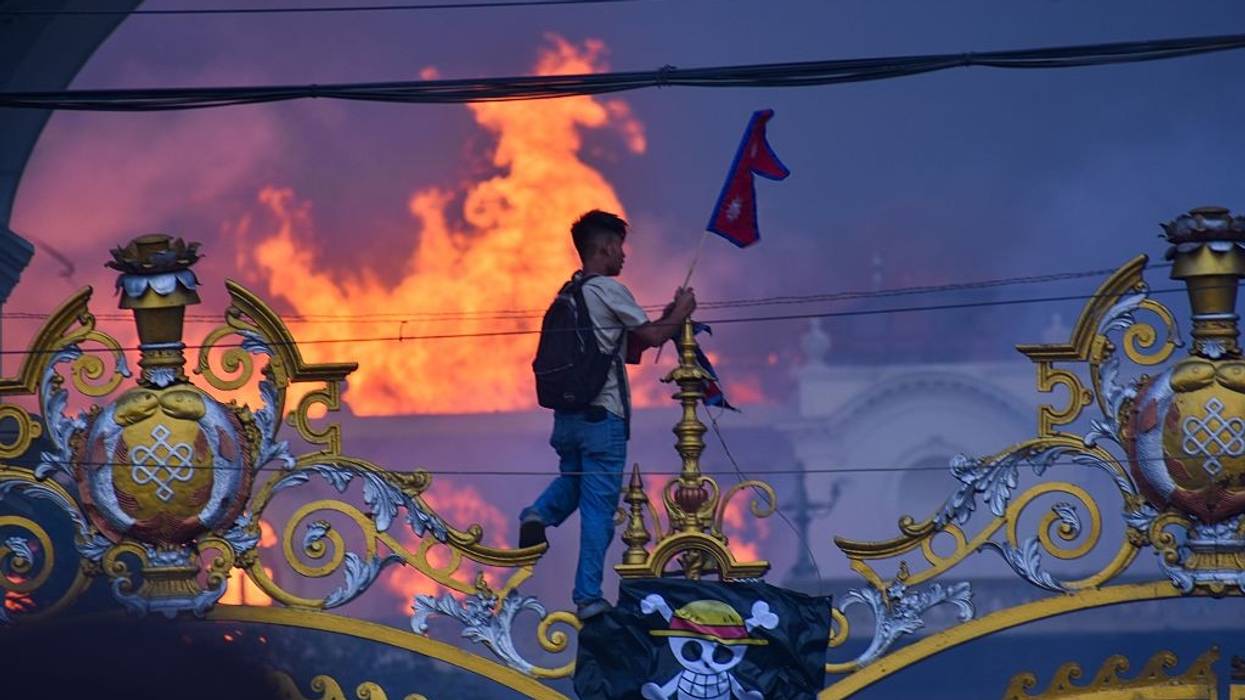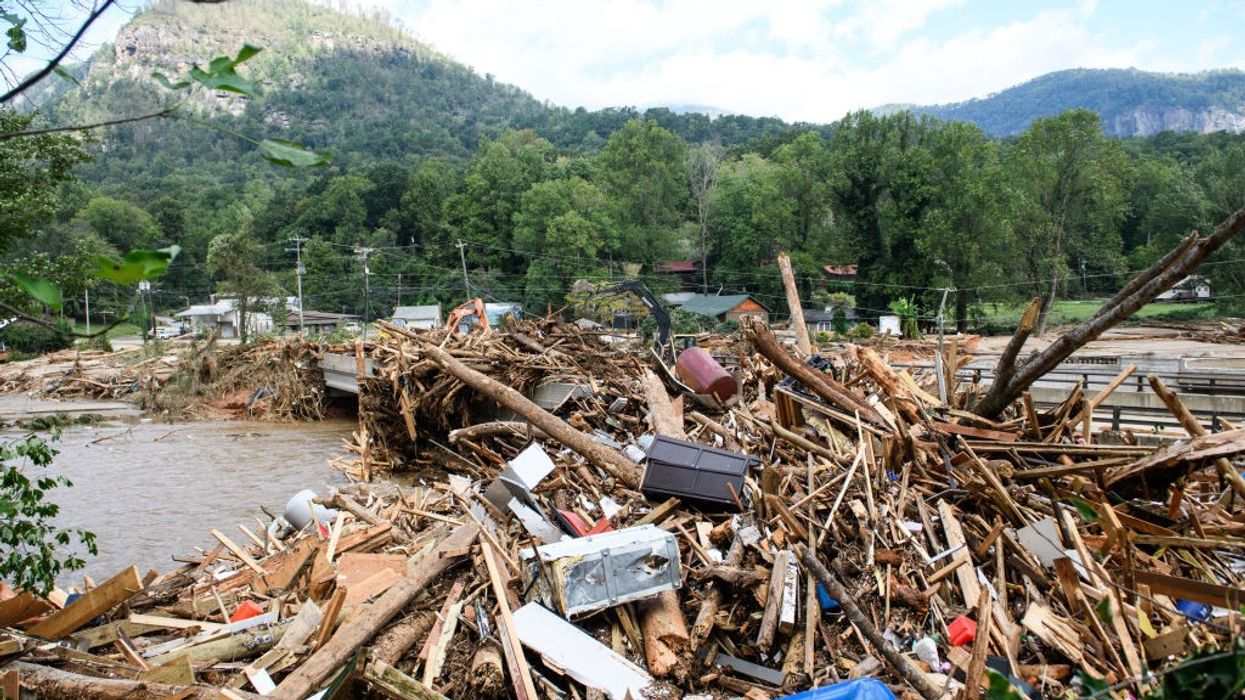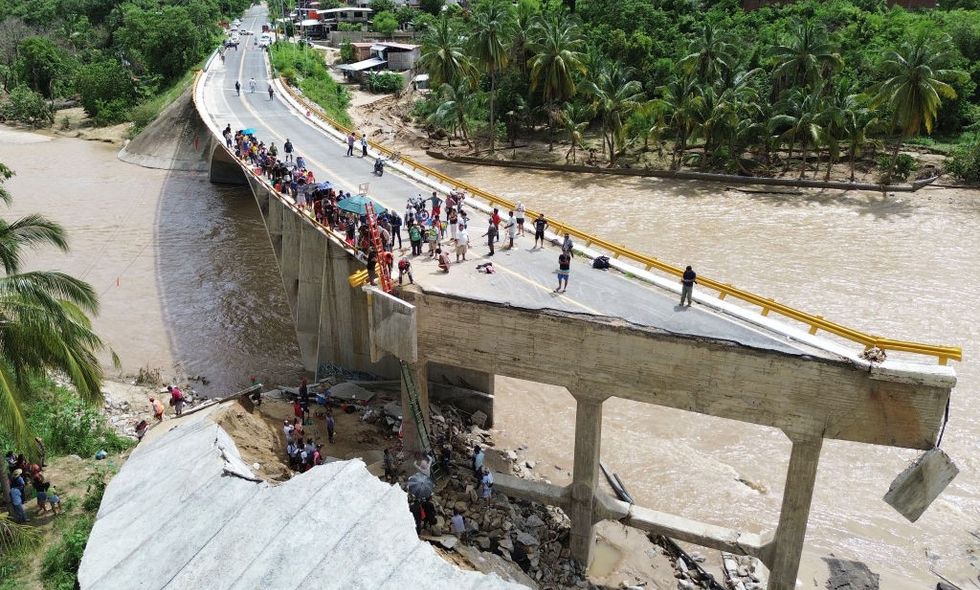Mexico also faced a deadly hurricane last week, while West and Central Africa and Central Europe both faced extreme flooding earlier in the month.
Bill McKibben, a prominent writer and climate organizer, said the effects of climate change are becoming impossible not to see.
"It is hard to open social media without seeing cellphone videos from the cars-washing-down-steep-streets genre; everywhere the flows are muddy-brown, and swirling with power," he wrote in an essay republished by Common Dreams on Monday.
Hurricane Helene hit Florida's Big Bend area late Thursday with 140-mph winds and then traveled through parts of Georgia, the Carolinas, Tennessee, and Virginia in the following days. The most severe damage came from rains in the mountains of eastern Tennessee and western North Carolina.
Parts of Asheville, North Carolina, saw stunning levels of flooding, with some buildings inundated to the top of the first story. The city's drinking water infrastructure was badly damaged. Ironically, Asheville had been described in a national news publication as a "climate haven" and "ideal destination" for climate stability.
Flooding also effectively destroyed Chimney Rock, a village of about 220 people roughly 20 miles east of Asheville, and the nearby town of Lake Lure, which has a population of about 1,300.
In addition to the 111 dead, there are hundreds of people unaccounted for following Hurricane Helene, whose strength was likely buoyed by exceptionally warm temperatures in the Gulf of Mexico.
"Make no mistake: The unimaginable devastation we're seeing across the Southeast is the climate crisis in action. As long as we continue with the status quo of unchecked fossil fuel use, these disasters will only become more frequent, more severe, and more deadly," Ben Jealous, the Sierra Club's executive director, said in a statement about the hurricane.
President Joe Biden said Monday that he would visit the region, possibly later this week, The New York Times reported. The Federal Emergency Management Agency (FEMA), along with the National Guard, the Army Corps of Engineers, and the Federal Communications Commission, have together deployed more than 6,300 aid and rescue personnel to the region.
The damage in Nepal has also been extraordinary. Monsoon season usually ends by mid-September, but not this year. Landslides in recent days cut off the major roads around Kathmandu, where heavy floods in the south of the city killed dozens.
On Saturday, a landslide near a road about 10 miles outside of Kathmandu killed roughly three dozen people who were sleeping on buses amid the stopped traffic caused by previous landslides, The Associated Press reported. The rains subsided on Sunday and rescue operations remain underway.
In addition to the 193 dead, there are 31 people missing and dozens injured, officials said.
The disasters in the U.S. and Nepal were preceded only slightly by Hurricane John, a category 3 storm that landed in the state of Guerrero in Mexico last week, near the resort city of Acapulco. The storm killed at least 16, with some media outlets reporting a death toll as high as 29.
Scientists dubbed John a "zombie storm" because it dissipated but then regained strength over the waters of the Pacific Ocean before landing again, as a tropical storm, further north in Mexico. Most of the damage came from torrential rains. The state of Oaxaca alone had more than 80 reported landslides, some of which buried homes and their occupants, the BBC reported.
 Residents look at a broken bridge following Hurricane John near Acapulco, Mexico, on September 29, 2024. (Photo: Francisco Robles/AFP via Getty Images)
Residents look at a broken bridge following Hurricane John near Acapulco, Mexico, on September 29, 2024. (Photo: Francisco Robles/AFP via Getty Images)
The disasters of the past week follow a month of extreme weather in much of the world.
"The month of September has seen record-breaking floods across parts of Europe, Africa, and Asia," The Guardian reported. "Hurricanes and heavy rains have left towns and cities submerged and triggered the mass displacement of people. Climate scientists have said that many of these incidents are linked to human-induced climate change."
Chad, Nigeria, Mali, Cameroon, and Niger have seen catastrophic flooding this rainy season, destroying hundreds of thousands of homes. Most of the city of Maiduguri, Nigeria was flooded on September 10 when a dam burst, causing mass displacement.
On September 18, Samantha Power, the administrator of the U.S. Agency for International Development, called the flooding in Africa "historic" and pleaded for more humanitarian assistance.
The flooding in Central Europe in mid-September, which was made more likely and more intense by climate change, also reached record-setting levels, lingering over a huge swath of territory, across several countries, for days.





 Residents look at a broken bridge following Hurricane John near Acapulco, Mexico, on September 29, 2024. (Photo: Francisco Robles/AFP via Getty Images)
Residents look at a broken bridge following Hurricane John near Acapulco, Mexico, on September 29, 2024. (Photo: Francisco Robles/AFP via Getty Images)